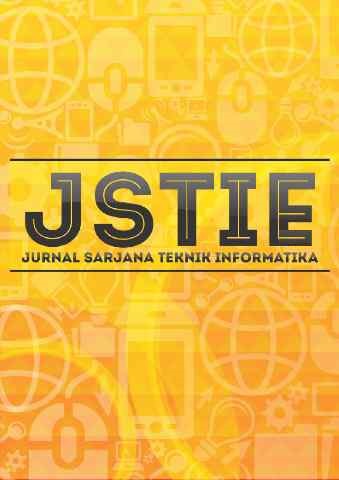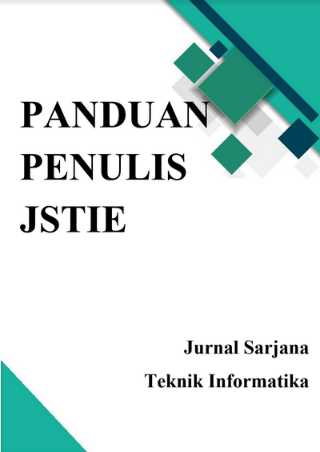Analisis Sentimen Menggunakan Long Short-Term Memory Terkait Vaksinasi Covid-19 Di Indonesia
DOI:
https://doi.org/10.12928/jstie.v11i3.27188Keywords:
Kecerdasan Buatan, Deep Learning, Pengetahuan dan Data MiningAbstract
Pro dan kontra masyarakat terkait program vaksinasi Covid-19 di Indonesia belum dikelola dengan baik oleh pemerintah. Pengelolaan opini dapat dilakukan dengan analisis sentimen untuk mendapatkan rekomendasi yang terbaik. Penelitian dengan topik yang sama banyak yang menggunakan machine learning, dan sedikit yang menggunakan deep learning. Pada penelitian ini memilih deep learning dengan algoritma Long Short-Term Memory (LSTM) untuk analisis sentimen. Penelitian ini bertujuan untuk mengetahui bagaimana melakukan analisis sentimen menggunakan LSTM terhadap vaksinasi Covid-19 di Indonesia. Serta dapat mengetahui performa LSTM untuk analisis sentiment terkait vaksinasi covid19 di Indonesia. Tahapan pertama dilakukan dengan pengumpulan data yang diambil dari Kaggle dengan topik yang sama. Kemudian dilakukan preprocessing. Setelah itu dilakukan klasifikasi dengan menggunakan LSTM. Proses akhir dari analisis sentimen yaitu pengujian metode klasifikasi untuk mengetahui performa model menggunakan confusion matrix dan classification report. Penelitian ini menggunakan 3000 data, dan dari banyak percobaan modifikasi model LSTM, dipilih model Bidirectional LSTM dan GloVe untuk word embedding, dengan menambahkan regularisasi berupa dropout dan pooling layer berupa GlobalMaxPool1D. Performa yang dihasilkan yaitu akurasi 71%, dengan rincian untuk sentimen negatif (presisi: 89%, recall: 20%, dan f1-score: 33%), sentimen netral (presisi: 72%, recall: 86%, dan f1-score: 78%), sentimen positif (presisi: 67%, recall: 72%, dan f1-score: 70%).
References
"Coronavirus disease 2019 ( COVID-19 )," in World Health Organization, 2020.
K. RI and S. COVID19, 25 April 2022. [Online]. Available: https://covid19.go.id/index.php/artikel/2022/04/25/situasi-covid-19-di-indonesia-update-25-april-2022.
L. Jemadu and D. Prastya, 23 Februari 2022. [Online]. Available: https://www.suara.com/tekno/2022/02/23/191809/jumlah-pengguna-media-sosial-indonesia-capai-1914-juta-per-2022?page=2.
C. Zucco, B. Calabrese, G. Agapito, P. H. Guzzi and M. Cannataro, "Sentiment Analysis For Mining Texts and Social Networks Data: Methods and tools," Wiley Interdisciplinary Reviews: Data Mining and Knowledge Discovery, pp. 1-32, 2019.
W. Yulita, "ANALISIS SENTIMEN TERHADAP OPINI MASYARAKAT TENTANG VAKSIN COVID-19 MENGGUNAKAN ALGORITMA NAÏVE BAYES CLASSIFIER," JDMSI, Vol. 2, No. 2, 2021, pp. 1-9, 2021.
M. Lestandy, A. Abdurrahim and L. Syafa’ah, "Analisis Sentimen Tweet Vaksin COVID-19 Menggunakan Recurrent," Rekayasa Sistem dan Teknologi Informasi, vol. V, pp. 802-808, 2021.
R. R. Aryal and A. Bhattarai, "Sentiment Analysis on Covid-19 Vaccination Tweets using Naïve," Advances in Engineering and Technology: An International Journal, vol. I, pp. 57-70, 2021.
B. Laurensz and E. Sediyono, "Analisis Sentimen Masyarakat terhadap Tindakan VaksinasidalamUpayaMengatasiPandemi Covid-19," Jurnal Nasional Teknik Elektro dan Teknologi Informasi| Vol. 10, No. 2, Mei 2021, pp. 118-123, 2021.
A. Harun and D. P. Ananda, "Analisa Sentimen Opini Publik Tentang Vaksinasi Covid-19 di Indonesia Menggunakan Naïve Bayes dan Decission Tree," MALCOM: Indonesian Journal of Machine Learning and Computer Science Vol. 1 Iss. 1 April 2021, pp. 58-63, 2021.
N. SALSABILA, “ANALISIS SENTIMEN MEDIA SOSIAL TWITTER TERHADAP PROGRAM VAKSINASI COVID-19 DI INDONESIA DENGAN ALGORITMA NAIVE BAYES,” Universitas Telkom, S1 Sistem Informasi, Bandung, 2021.
M. Ihsan, B. S. Negara and S. Agustian, "LSTM (Long Short Term Memory) for Sentiment COVID-19 Vaccine Classification on Twitter," Jurnal Teknologi Informasi dan Komunikasi, vol. XIII, pp. 79-89, 2022.
A. F. Hidayatullah, S. Cahyaningtyas and A. M. Hakim, "Sentiment Analysis on Twitter using Neural Network:," in IOP Conference Series: Materials Science and Engineering, 2021.
D. J. M. Pasaribu, Kusrini and Sudarmawan, "PENINGKATAN AKURASI KLASIFIKASI SENTIMEN ULASAN MAKANAN AMAZON DENGAN BIDIRECTIONAL LSTM DAN BERT EMBEDDING," Inspiration: Jurnal Teknologi Informasi dan Komunikasi, vol. Volume 10, pp. 9-20, 2020.
S. Saxena, "What is LSTM? Introduction to Long Short-Term Memory," Analytics Vidhya, 16 Maret 2021. [Online]. Available: https://www.analyticsvidhya.com/blog/2021/03/introduction-to-long-short-term-memory-lstm/.
S. Narkhede, "Understanding Confusion Matrix," Towards Data Science, 9 May 2018. [Online]. Available: https://towardsdatascience.com/understanding-confusion-matrix-a9ad42dcfd62.
Downloads
Published
Issue
Section
License
License and Copyright Agreement
In submitting the manuscript to the journal, the authors certify that:
- They are authorized by their co-authors to enter into these arrangements.
- The work described has not been formally published before, except in the form of an abstract or as part of a published lecture, review, thesis, or overlay journal. Please also carefully read Journal Posting Your Article Policy.
- The work is not under consideration for publication elsewhere.
- The work has been approved by all the author(s) and by the responsible authorities – tacitly or explicitly – of the institutes where the work has been carried out.
- They secure the right to reproduce any material that has already been published or copyrighted elsewhere.
- They agree to the following license and copyright agreement.
Copyright
Authors who publish with Jurnal Sarjana Teknik Informatika agree to the following terms:
- Authors retain copyright and grant the journal right of first publication with the work simultaneously licensed under a Creative Commons Attribution License (CC BY-SA 4.0) that allows others to share the work with an acknowledgement of the work's authorship and initial publication in this journal.
- Authors are able to enter into separate, additional contractual arrangements for the non-exclusive distribution of the journal's published version of the work (e.g., post it to an institutional repository or publish it in a book), with an acknowledgement of its initial publication in this journal.
- Authors are permitted and encouraged to post their work online (e.g., in institutional repositories or on their website) prior to and during the submission process, as it can lead to productive exchanges, as well as earlier and greater citation of published work.








